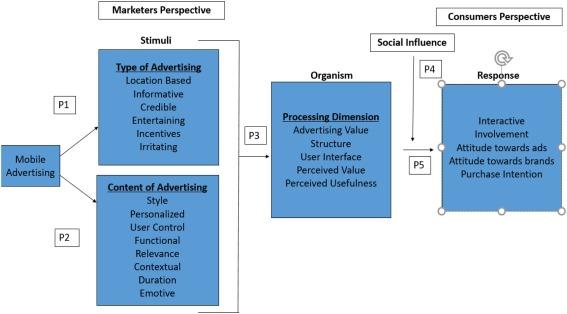5 Compelling Case studies Showcasing Blockchain in Higher Education
Blockchain technology has rapidly transcended its initial association with cryptocurrencies, emerging as a transformative force in higher education. From secure credentialing to cross-institutional collaboration, blockchain promises transparency, efficiency, and trust—qualities that are invaluable in academia. In this article,we’ll explore five real-world case studies that highlight how blockchain is reshaping the landscape of higher education. Weather you’re an administrator,educator,or student,these success stories will inspire you to consider the potential of blockchain in higher education.
Understanding the benefits of Blockchain in Higher Education
- Secure Credential Verification: Instantly verifies degrees,certificates,and credits,reducing fraud and streamlining employment processes.
- Data Transparency and accessibility: Makes student records easily accessible and tamper-proof for both students and institutions.
- Cross-Border Collaboration: Supports seamless credit transfer and international recognition of qualifications.
- Cost Effectiveness: Reduces administrative overheads by automating verification and information sharing.
- Student Empowerment: Gives learners ownership and control over their academic data and achievements.
5 Key Case Studies: Blockchain Transforming Higher Education
1. MIT: Pioneering Blockchain-Based Digital Diplomas
The Massachusetts Institute of Technology (MIT) led one of the earliest and most influential projects in blockchain education technology:
- Project Initiative: In 2017, MIT offered graduates the option to receive digital diplomas via the Blockcerts platform, powered by blockchain.
- technology used: Blockcerts is an open standard for blockchain credentialing.
- Impact: Graduates can securely share verified diplomas with employers or othre institutions, globally, with a simple digital link. The authenticity of their diploma is instantly verifiable on the blockchain.
This eliminates the common problem of lost, delayed, or forged credentials and enhances alumni satisfaction.
2. University of Nicosia: First University Issuing Blockchain Academic Certificates
The University of Nicosia in Cyprus is recognized as a global leader in blockchain and cryptocurrency education. Its contributions include:
- First Mover: In 2014, it became the world’s first university to issue academic certificates on the blockchain.
- Global Accessibility: Certificates are accessible and verifiable by anyone, anywhere, without intermediary verification.
- Industry Integration: The university also offers a Master’s degree in Digital Currency, incorporating blockchain in both curriculum and management.
3. Sony Global Education & IBM: Blockchain for Transcript Sharing
In 2017, Sony Global Education and IBM partnered to create an innovative blockchain platform to secure and share educational records:
- Ecosystem: Stores various forms of student achievements and credentials, from K-12 through higher education.
- Practical Outcomes: Makes it possible for students to seamlessly share academic records with other universities and employers worldwide.
- Data Security: Guarantees data tamper-resistance and full control for students over what information is shared and with whom.
4. Delft University of Technology (TU Delft): Blockchain Credentials for lifelong Learners
Addressing the growing need for lifelong learning, TU Delft implemented blockchain to boost agility and recognition of micro-credentials:
- Micro-Credentialing: Issues digital badges and certificates—proof of participation and mastery in professional and academic programs—directly to blockchain.
- Interoperability: Enables verification of these credentials across European and global educational institutions.
- Learner Empowerment: Allows learners to build a composite, verifiable portfolio of skills developed over their careers.
5.Malta’s Government & Education System: Blockchain National Implementation
In a bold national policy move, the Maltese government piloted blockchain for all educational certificates across its institutions:
- Country-Wide Initiative: All academic certificates, from secondary through postgraduate, are issued and verified on a national blockchain infrastructure.
- Combatting credential Fraud: Effectively eliminates fake diplomas and enhances trust in Maltese education both locally and internationally.
- Administrative Streamlining: Integrates credentialing with administrative systems, reducing red tape for both students and employers.
First-Hand Experience: How Blockchain Makes a Difference
“After receiving my digital diploma from MIT, I was able to send a verified copy directly to my prospective employer, who instantly confirmed its authenticity online. This not only sped up my hiring process but also gave both sides peace of mind.” – MIT Class of 2018 Graduate
Such testimonials underscore the real-world impact and efficiency gains that come from adopting blockchain-driven credentialing systems in higher education.
Practical Tips for Implementing Blockchain in Higher Education
- Start with Pilot Programs: Test blockchain-based credentialing with a limited set of degrees or certificates before expanding.
- Engage Stakeholders: Involve students, faculty, employers, and IT administrators early to ensure buy-in and smooth adoption.
- Choose Open Standards: Platforms like Blockcerts ensure interoperability and long-term sustainability.
- Prioritize Security: Ensure that all implementations adhere to robust cybersecurity and student privacy standards.
- focus on User Experience: Make credential access and sharing as seamless as possible for students and employers alike.
Conclusion: The Future of Blockchain in Higher Education
From pioneering universities to national governments, blockchain in higher education has moved from experimental pilot projects to working, large-scale implementations.These case studies demonstrate how blockchain technology is already solving real-world challenges: improving credential security, enhancing international mobility, and placing students firmly in control of their learning achievements.
As academic institutions continue to explore blockchain adoption, the benefits will only grow—ushering in an era of transparency, trust, and efficiency. Now is the perfect time for educators, students, and policymakers to familiarize themselves with this powerful innovation shaping the future of higher education worldwide.

